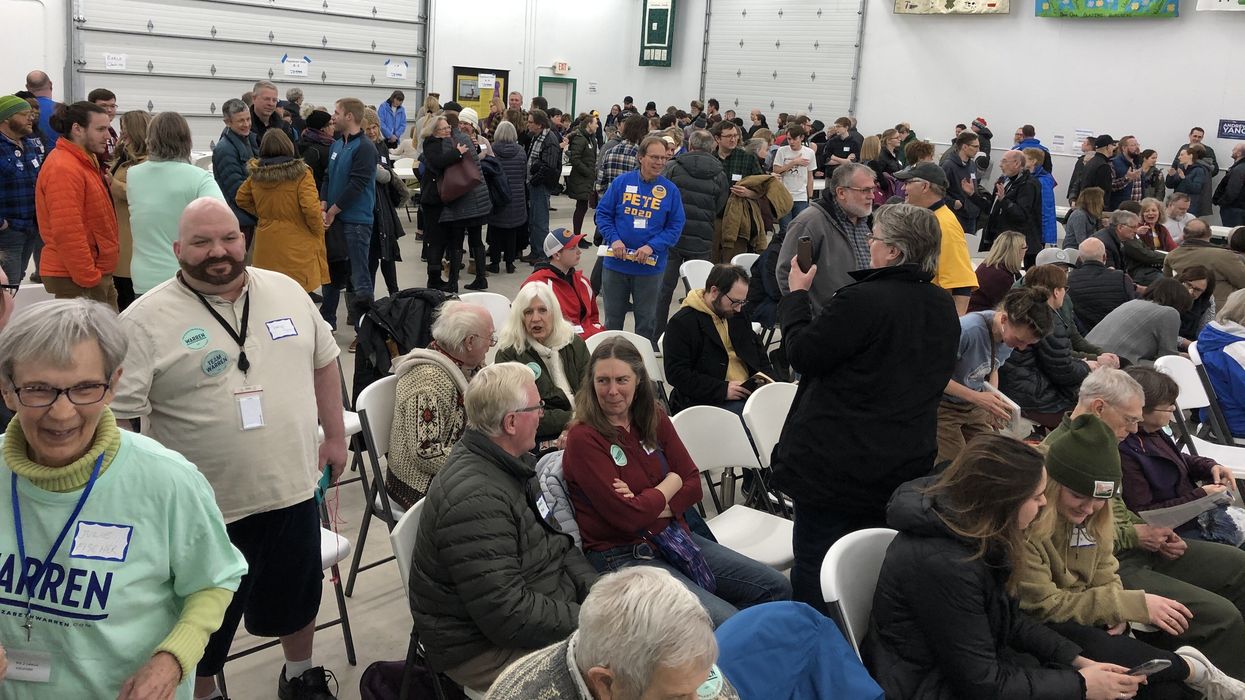Lockard is an Iowa resident who regularly contributes to regional newspapers and periodicals. She is working on the second of a four-book fictional series based on Jane Austen’s “Pride and Prejudice."
There is nothing like the Iowa caucuses. “Grassroots” doesn’t even begin to describe the process; it’s the very foundation of democracy. Registered party members, divided by voting districts, gather in a school, a public facility or a church basement with their neighbors, friends, employers, teachers, etc., anyone in the same party, precinct and ward. Then, once the party roster has been checked, the real “partying” begins.
The Democrats break into camps, divided by the candidate they support, a newcomer welcomed into the fold like a long-lost relative. Recruiting undecided voters, supporters wander from camp to camp, advocating for their candidate. Hands are raised, votes are counted, the top vote-getters move ahead. After a wild dance and much shuffling, realignment takes place, the field is whittled, at last the final results are tallied.
The Republican caucus is more traditional, using a secret-ballot vote, with the winner taking the state. In both caucuses, the parties discuss the national platform, what to support, oppose, challenge. Strong opinions swirl, arguments ensue, everyone is invested, everyone cares.
Iowans have held tremendous influence in the past with their Big Show, the first-in-the-nation caucuses. The caucuses are politics at its best, as Iowan as the famous butter cow at the state fair. Every citizen of the state has the opportunity to meet and assess the presidential candidates. Ninety-nine counties, and the candidates are everywhere.
At least the Republican candidates are here this year, as their in-person caucus has survived.
The Democrats, not so much. This is largely because they bungled the results of the 2020 caucus while trying out a new app designed to glean additional information. It turned out the app didn’t give much information at all, including the identity of the winners. The world waited and watched and waited some more, but in the end Iowa had no timely or tangible caucus results to report.
So, the Big Show is not as big this year, as roughly half of prospective caucus-goers are not traditionally caucusing. The Democrats are conducting their first-ever mail-in caucus, with “preference” cards sent out starting Jan. 12. They will still hold a “traditional Caucus,” but to discuss party business only. The results of this mail-in caucus will be announced on March 5, aka Super Tuesday, basically treating the caucus as one of many primaries that day.
Lest Republicans think they are above such snafus, let us remember 2012 when they, too, muddled their reporting and also threatened the legitimacy of Iowa’s first-in-the-nation status. They could not declare a winner, waffling between Mitt Romney and Rick Santorum, who each garnered about 25 percent of the vote. In a preliminary report, they declared Romney the winner. Two weeks later they announced the contest was, in fact, a draw. After that, they reversed themselves, and declared Santorum the winner. What?!
Yet, they held on. And on Monday, Jan. 15,, all registered Republicans will have a chance to again caucus in person. This is great news, not only for Iowa but for the election process.
Because those caucus gaffes were simply aberrations, not indications of the system itself. They were not the result of fraud or attempts at disenfranchising the voting process. Ultimately, they were the result of Iowans trying to be utterly thorough and fair in their caucus reporting.
Of course, every person, in every state, has the privilege of becoming involved, not just Iowans with their caucuses or those in early primary states. And involved not just in this election, but in all which impact us as citizens and the issues and people we care about. Engaging in our own life and times and caring enough to affect positive change in the world changes it already.
Iowa’s status has been challenged. It should not be.
Iowans get out, often in “stay at home” weather, to meet the candidates, listen to them, evaluate them. They take their “work” seriously. On Nov. 5, when we vote to choose the best person for arguably the most important job on the planet, thanks Iowans, who will have laid the groundwork.




















